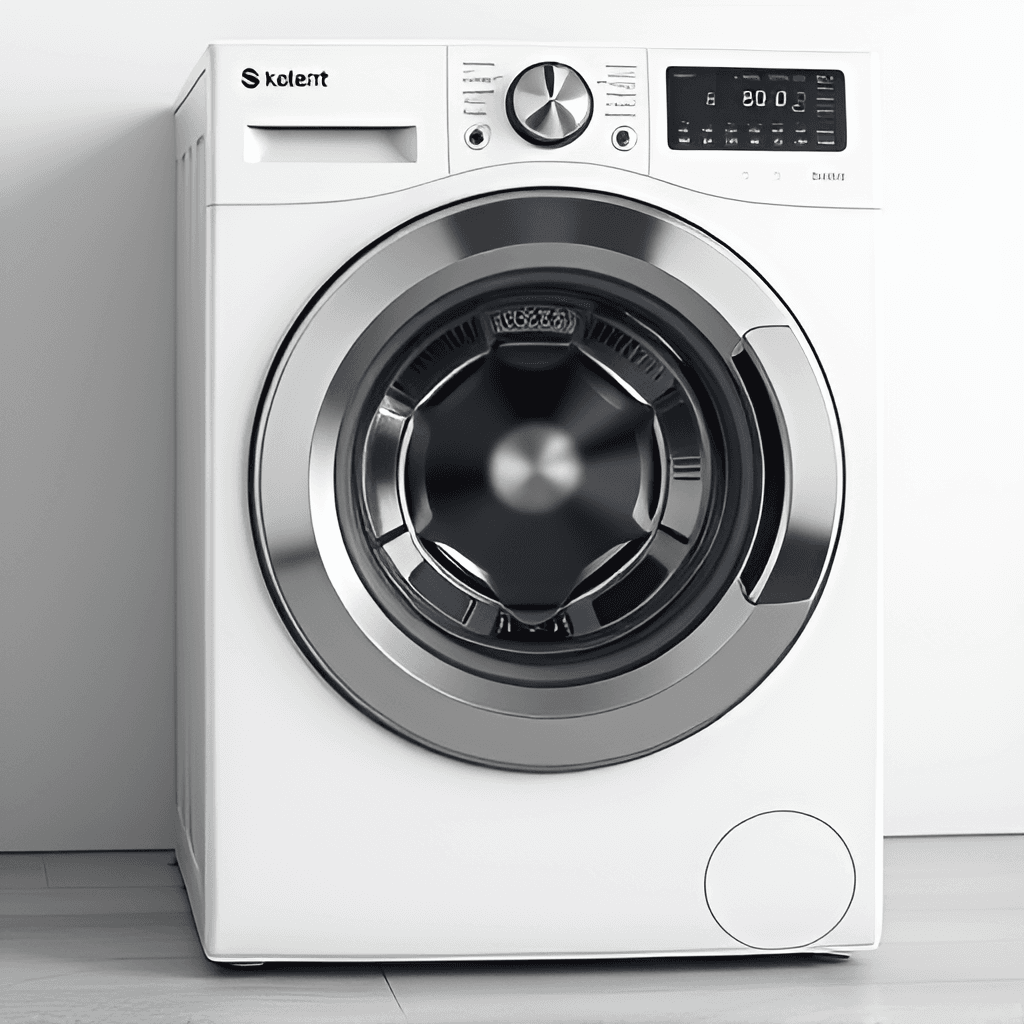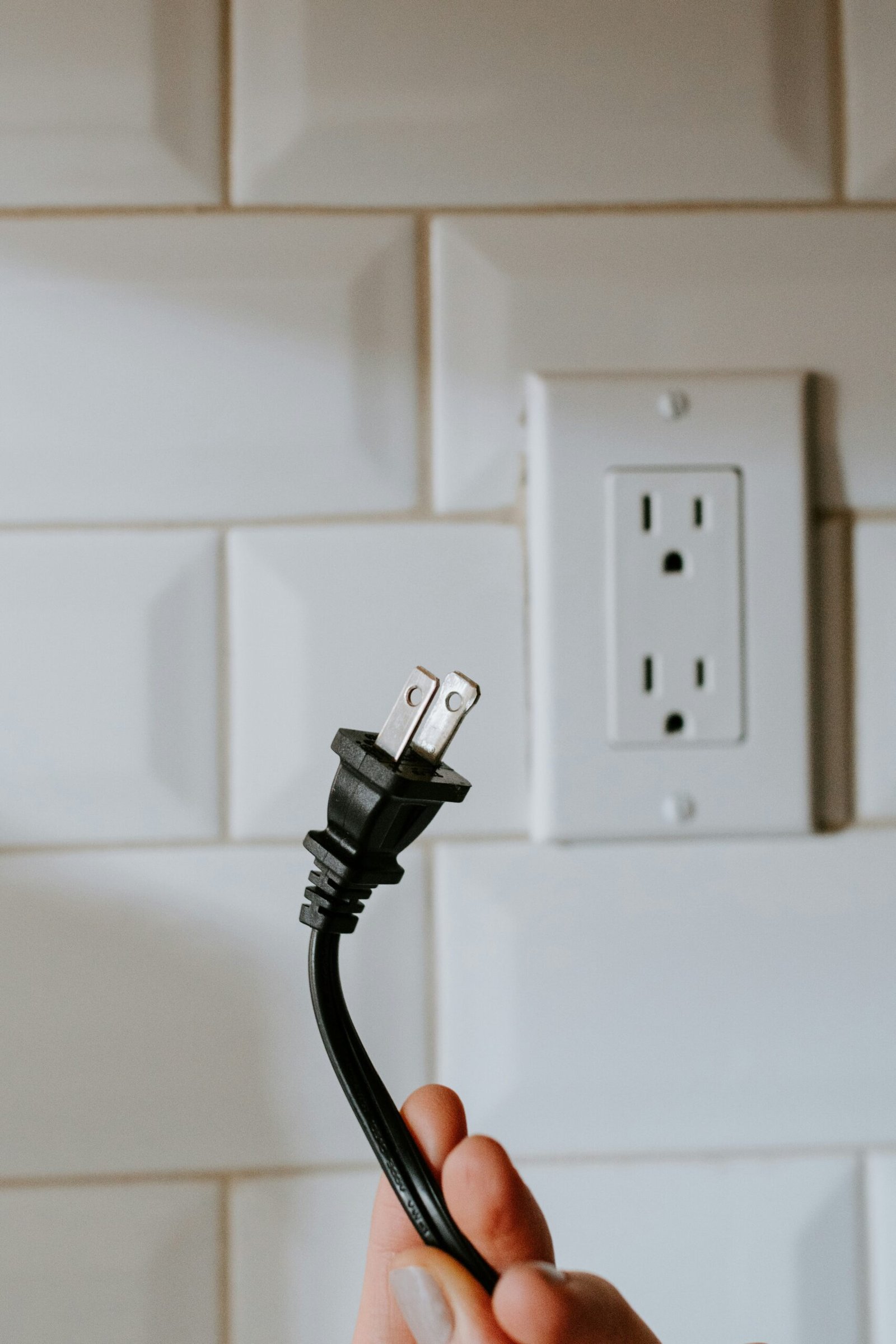Exploring the nighttime laundry dilemma, this blog post discusses the impact of washing clothes at night on household peace, sleep quality, and overall well-being. While many resort to late-night laundry for convenience, this practice can lead to noise disturbances, higher energy costs, and added stress. Learn effective alternatives to night laundry with scheduling tips that harmonize household routines, as well as stylish solutions for modern apartment living. Embrace a more organized approach to laundry that prioritizes comfort and efficiency while promoting healthier living environments.
The Nighttime Laundry Dilemma
Washing clothes at night is a common practice in many households. After a long day of work and other responsibilities, many individuals resort to doing laundry as a way to manage time effectively. However, this seemingly convenient choice can lead to several inconveniences that may outweigh the perceived benefits. Laundry done late at night can disturb the peace of a household, creating noise that affects the quality of sleep for everyone in the vicinity.

Modern washing machines, while efficient, can be surprisingly loud during their spin cycles. This noise can disrupt family members or roommates who may be trying to unwind after a hectic day. The rumble of a washing machine can also be particularly problematic in smaller living spaces, where the washer may be located adjacent to bedrooms or other quiet areas. The discomfort caused by this intrusive sound can lead to restless nights and reduced overall well-being.
Read this post and do not forget to check out our YouTube channel “Grig Stamate.”
https://www.youtube.com/@GrigStamate
for more inspiration regarding other smart and clever ideas for your home interiors.
Let’s see one beautiful video from our channel:
If You Dream to an EXCLUSIVE BATHROOM – take a closer look here (video)
Moreover, washing clothes at night can complicate laundry management. When clothes are washed late, they may remain in the washer during the night, creating a risk of developing a musty smell due to dampness. This situation often forces individuals to engage in unexpected late-night chores, such as re-washing garments or hastily putting them into the dryer to prevent mildew. Such actions can significantly disrupt the calm of nighttime routines and compromise the quality of rest.
Furthermore, late-night laundry can interfere with one’s ability to relax. After a long day, the allure of unwinding with a book or simply enjoying some quiet time can be overshadowed by the need to tend to laundry responsibilities. All these factors suggest that while nighttime laundry may seem like an efficient solution, it can often lead to a cycle of inconvenience and frustration. Thus, reevaluating the practice of washing clothes at night is essential for maintaining a harmonious living environment.
The Hidden Costs of Nighttime Laundry
Washing clothes at night may initially seem like a time-saving practice, but it can lead to several hidden costs that warrant consideration. One of the primary financial implications stems from electricity billing cycles. Many utility companies implement time-of-use pricing, which means that energy costs can significantly increase during peak hours, typically coinciding with nighttime usage. Operating washing machines during these hours can result in noticeably higher electricity bills, making this seemingly innocuous habit more expensive than anticipated.
In addition to elevated energy costs, nighttime laundry can contribute to increased wear and tear on washing machines. Standard washing machines, when used frequently during late hours, may operate under less than ideal conditions for optimal performance. Most machines are designed for use during the day when temperatures and humidity levels are more stable. Nighttime operations may lead to increased strain, resulting in mechanical issues over time. These issues not only require costly repairs but also shorten the lifespan of the appliance, leading to premature replacements.
Furthermore, nighttime laundering can inadvertently disrupt household routines. The noise generated by washing machines and dryers during late hours may disturb other family members’ sleep, creating unnecessary tensions within the household. This is particularly relevant in smaller living spaces where sound travels more easily. To cultivate a harmonious living environment, it becomes essential to consider how late-night activities, such as laundry, impact those sharing the space.
Ultimately, while the convenience of nighttime laundry is tempting, the potential repercussions on energy bills, appliance lifespan, and overall household dynamics call for a more cautious approach. By reevaluating this routine, you can mitigate unforeseen expenses and promote a healthier living atmosphere.
Sleep Disruption: How Nighttime Laundry Affects Rest
Engaging in laundry activities during the late hours can significantly disrupt sleep quality and overall well-being. The rhythmic sounds of a washing machine or dryer, while seemingly innocuous, can be a source of distraction. The noise generated by these appliances can penetrate the tranquil environment necessary for restful sleep, particularly in homes with open floor plans or shared living spaces.
Studies suggest that noise pollution, including household disturbances, contributes to sleep fragmentation, leading to difficulty in falling asleep or maintaining deep sleep cycles. This fragmentation results in an insufficient amount of restorative sleep, which is critical for cognitive function, mood regulation, and overall health. For individuals who prioritize self-care, ensuring an undisturbed sleeping environment is paramount, and late-night laundry can undermine these efforts.
Moreover, the act of doing laundry at night may carry emotional implications. Many people view the nighttime as a period dedicated to relaxation and unwinding. Introducing chores into this sacred space can induce stress and anxiety, creating a mental association between sleep time and responsibilities. This mental shift may further exacerbate difficulties in initiating sleep, as the brain remains engaged with thoughts about incomplete tasks.
Additionally, the interruption of circadian rhythms—our body’s internal clock—can lead to various health challenges. Circadian rhythm disturbances have been linked to sleep disorders, metabolic issues, and mood swings. Therefore, by avoiding nighttime laundry, individuals can foster a more conducive environment for sleep, ultimately enhancing their overall health and quality of life.
In conclusion, the impact of late-night laundry on sleep cannot be understated. It’s essential to prioritize a peaceful sleeping environment by scheduling laundry activities during the day, ensuring uninterrupted rest for better well-being.
Alternatives to Nighttime Laundry
When it comes to managing household chores, particularly laundry, many individuals find themselves tempted to wash clothes at night due to busy schedules. However, there are several alternatives that can enhance efficiency and prevent potential inconveniences associated with nighttime washing. One effective approach is to schedule laundry during flexible daytime hours. By aligning laundry tasks with daily routines, individuals can take advantage of natural daylight, making the process more convenient and organized.
For instance, setting aside specific times in the morning or early afternoon can help prevent the accumulation of dirty laundry. It allows individuals to complete the task before engaging in other activities. Moreover, using weekends strategically can be beneficial. Those who may be working during the week can dedicate time on Saturday or Sunday afternoons for laundry, thereby alleviating the rush and ensuring clothes are cleaned during optimal hours.
Additionally, it is worth considering quieter times for laundry, such as early in the morning or later in the evening before households become overly active. These quieter periods can provide an opportunity to wash and dry clothes without disturbing others in the home. Implementing a routine can also ensure that laundry does not pile up. By incorporating laundry tasks into scheduled housework, one can maintain a more manageable workload throughout the week.
Furthermore, utilizing laundromats during off-peak hours can be an alternative for those without personal washing machines. Many places have flexible operating hours, allowing individuals to wash clothes at convenient times. Effectively prioritizing laundry during the day or quieter hours can minimize disruption and enhance overall home management. Adopting such strategies can ultimately lead to a more organized and efficient laundry experience, avoiding the common pitfalls of nighttime washing.
Creating a Laundry Schedule: A Step by Step Guide
Establishing a regular laundry schedule is essential for maintaining an organized and efficient home, particularly for those with demanding lifestyles. A consistent laundry routine not only helps to manage the laundry piling up but also prevents unnecessary stress and last-minute scrambles for clean clothes. Below are practical steps to create an effective laundry schedule that complements your busy life.
First, assess your personal and family laundry needs. Take note of how often you require clean clothes, linens, and towels. This evaluation will guide you in determining how frequently you should dedicate time to laundry. A general rule of thumb is to set aside at least one day a week for laundry, but depending on your household size and lifestyle, you may need to wash clothes more often.
Next, determine your optimal laundry days. Weekend days are commonly chosen for catch-up chores; however, consider enhancing your schedule to include midweek sessions if necessary. By distributing your laundry tasks, you can avoid overwhelming loads and keep your wardrobe manageable. For instance, you might designate Tuesdays for whites and Thursdays for colors, thereby allowing for a more organized approach.
Once your laundry days are set, incorporate time management strategies. Allocating specific time slots in your daily planner can help prioritize your laundry tasks. It’s also beneficial to integrate laundry into daily routines, such as doing a load while preparing dinner or entertaining guests. Additionally, utilizing technology, like washing machines with delay start options, can efficiently integrate laundry into your lifestyle.
Finally, be flexible and adjust your laundry schedule as needed. Life can be unpredictable; hence, it’s crucial to remain adaptable. This approach ensures laundry becomes a manageable part of your weekly routine, alleviating the pressure of tasks commonly left to the end of the day and significantly improving your overall home management.
Stylish Solutions: Modern Apartment Living
In the realm of modern apartment living, the integration of functionality and aesthetics is paramount, especially when considering laundry solutions. As urban spaces become increasingly compact, the challenge lies in seamlessly incorporating laundry areas without compromising on style. One effective strategy for enhancing your living environment is to designate a multifunctional space for laundry. By utilizing hidden cabinets or chic fold-out tables, you can effectively maximize limited square footage while maintaining a sleek appearance.
Innovative design solutions like vertical storage units or wall-mounted drying racks offer practical appeal and contribute to the overall décor of the apartment. Choosing neutral colors and high-quality materials ensures that the laundry area blends harmoniously with the rest of your living space. Additionally, consider investing in stylish hampers and storage bins that complement your interior design, thereby transforming what is often viewed as a chore into a visually pleasing aspect of your home.
Moreover, incorporating adequate lighting can elevate the laundry experience. Opting for under-cabinet lighting or pendant fixtures can create a warm atmosphere in the laundry corner, making the area feel more inviting. With the right design choices, even small laundry areas can be transformed into elegant yet practical spaces that reflect contemporary aesthetics.
In today’s modern apartments, it is possible to maintain a chic look while still having a fully functional laundry space. Practical design tips, such as maximizing vertical space, integrating stylish storage solutions, and enhancing illumination, can harmonize elegance with utility. By redefining how laundry areas fit into your home, you achieve a balance that embodies both simplicity and sophistication, allowing your apartment to thrive as a modern living space.
The Art of Decluttering: Why Simplicity Equals Elegance
In the contemporary world, where consumerism often prevails, the philosophy of minimalism has emerged as a refreshing antidote. Minimalism promotes a lifestyle that emphasizes simplicity, functionality, and elegance through the intentional removal of excess. This principle extends beyond mere aesthetics; it significantly enhances one’s quality of life. When applied to laundry practices, the art of decluttering can lead to a more organized, effective, and visually pleasing routine.
The act of decluttering begins with a diligent assessment of personal belongings, identifying items that contribute positively to one’s life. Clothing often becomes the centerpiece of clutter in many households. By adopting a minimalist mindset, one can streamline their wardrobe by focusing on quality over quantity. This involves keeping versatile, timeless pieces while letting go of items that no longer serve a purpose. Such an approach not only reduces the mess but also simplifies laundry routines, as fewer clothes mean less washing, folding, and organizing.
Moreover, an organized laundry area plays a crucial role in decluttering. By creating a dedicated space for laundry that is efficient and aesthetically pleasing, individuals can transform a mundane chore into a more enjoyable experience. This can be achieved through thoughtful storage solutions, such as baskets and shelves, that keep laundry items neatly arranged and out of sight when not in use. A clean, uncluttered environment fosters a sense of tranquility and encourages a more systematic approach to laundry that aligns with minimalist values.
Ultimately, the integration of minimalism into laundry practices not only leads to cleaner spaces but also cultivates a lifestyle characterized by elegance and simplicity. By embracing decluttering, individuals pave the way for streamlined routines that harmonize with the ideals of modern living.
Reader Experiences: Sharing Stories
Engaging with our community is vital, and personal experiences often resonate with others on similar journeys. Many of us have faced the challenges of home upkeep, particularly when it comes to laundry practices that might seem convenient but could lead to unforeseen consequences. Gathering stories from readers about their nighttime laundry routines can shine a light on the varied reasons behind this habit, as well as the outcomes that followed.
For example, one reader shared how she found herself often waiting until nighttime to wash clothes due to her hectic daytime schedule. Initially, she was drawn to the idea of completing nighttime chores while her family slept, finding solace in the quiet of the evening hours. However, as time went on, she began to notice the lingering dampness of clothes left in the washer overnight, ultimately leading to mildew and an unpleasant odor—a problem that could have been easily avoided with a different approach to scheduling her laundry chores.
Another reader reflected on her experience with noise. While she initially believed that washing clothes at night would disturb no one, she learned that late-night cycles disrupted her partner’s sleep. Their discussions ultimately fostered a new understanding of household etiquette, centering the importance of communication and respect for one another’s needs in a shared living space.
These stories remind us that our choices in home maintenance can deeply affect not just ourselves but also those around us. By sharing these experiences, readers can connect over common challenges and learn from one another’s lessons. Each anecdote contributes to a collective insight, encouraging dialogue on the best practices for laundry and home upkeep. Embracing these stories fosters a stronger community bound by the everyday realities of modern living.
Conclusion: Elevate Your Routine and Space
As we have explored, the practice of washing clothes at night can introduce numerous challenges, from disturbances in your sleep cycle to the potential for increased energy costs. The decision to avoid laundry during evening hours is not solely about practicality; it reflects a conscious approach to living that prioritizes both comfort and efficiency in one’s environment. Embracing a daytime laundry schedule allows individuals to benefit from natural light and the invigorating feeling of a well-organized living space.
Additionally, the act of maintaining a clean and orderly home greatly contributes to mental clarity and overall well-being. It is worth noting that the arrangement and design of our interiors play a crucial role in shaping our daily experiences. A thoughtfully curated space elevates routines, enabling a seamless flow of activities—from laundry to relaxation. Thus, promoting a lifestyle that values simplicity and elegance can transform mundane tasks into enjoyable ones.
In light of this, it is essential for individuals to re-evaluate their routines, considering innovative strategies that honor both their time and living conditions. Rather than succumbing to the habit of nighttime laundry, embrace the opportunity to align household chores with daylight hours. This adjustment can have a positive ripple effect, enhancing productivity, increasing comfort, and fostering a sense of satisfaction within your home.
Ultimately, the goal is to inhabit a space that resonates with your values and enhances your quality of life. By prioritizing design principles that emphasize functionality while embracing smarter living habits, you not only create a more attractive environment but also invite tranquility and joy into your everyday experiences.
Other related posts from our website:
https://howtobuildahouseblog.com/household-magic-11-simple-tricks-youll-love/
https://howtobuildahouseblog.com/new-gadgets-that-make-household-chores-easier/
https://howtobuildahouseblog.com/household-objects-that-can-be-cleaned-with-vinegar/
We sincerely hope that our video and post can help you.
Please, write your opinion in the comment section and do not forget to subscribe to our channel if you are new to our YouTube channel.
See you soon at another post.
Bye, Bye


